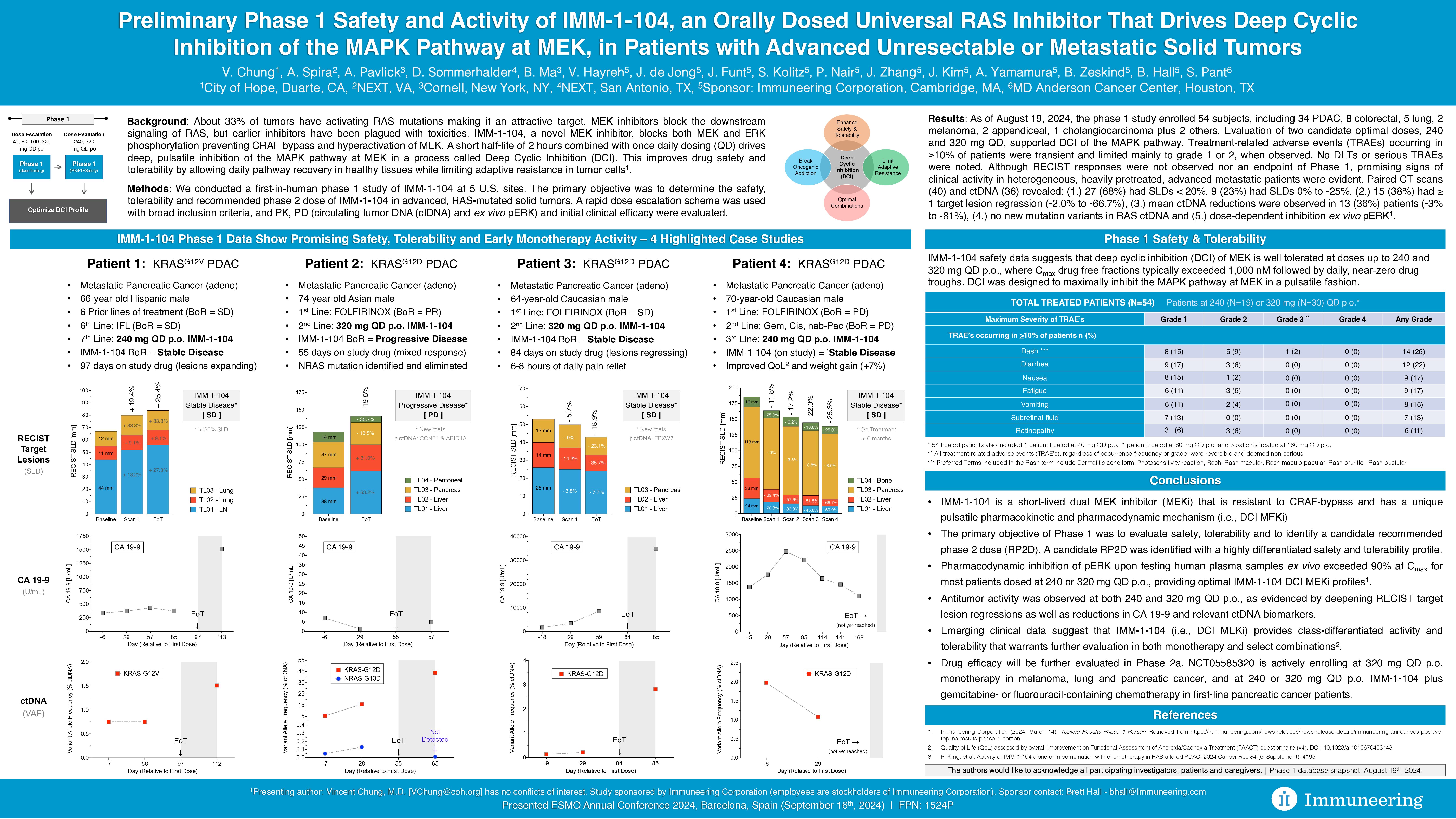Vincent Chung, Alex Spira, Anna Pavlick, David Sommerhalder, Brett Hall, Vinny Hayreh, Jan de Jong, Jason Funt, Sarah Kolitz, Praveen Nair, Peter King, Jenny Zhang, Jason Kim, Amy Yamamura, Benjamin Zeskind, Shubham Pant
Background:
About 33% of tumors have activating RAS mutations making it an attractive target. MEK inhibitors block the downstream signaling of RAS, but earlier inhibitors have been plagued with toxicities. IMM-1-104, a novel MEK inhibitor, blocks both MEK and ERK phosphorylation preventing CRAF bypass and hyperactivation of MEK. A short half-life of 2 hours combined with once daily dosing (QD) drives pulsatile inhibition of the MAPK pathway at MEK in a process called Deep Cyclic Inhibition (DCI). This improves drug safety and tolerability by allowing daily pathway recovery in healthy tissues while limiting adaptive resistance in tumor cells.
Methods:
We conducted a first-in-human phase 1 study of IMM-1-104 at 5 U.S. sites. The primary objective was to determine the safety, tolerability and recommended phase 2 dose (RP2D) of IMM-1-104 in advanced, RAS-mutated solid tumors. A rapid dose escalation scheme was used with broad inclusion criteria, and PK, PD, ctDNA and initial clinical efficacy were evaluated.
Results:
As of May 1, 2024, the phase 1 study completed enrollment of 45 subjects, including 30 PDAC, 5 colorectal, 5 lung, 2 melanoma, 1 cholangiocarcinoma plus 2 others. Two candidate optimal doses, 240 and 320 mg QD, supported ≥ 90% DCI of the MAPK pathway at ERK. Treatment-related adverse events (TRAEs) occurring in ≥10% of patients were mild and transient (see table). No dose-limiting toxicities or serious TRAEs were observed. Early signs of clinical activity in a heavily pretreated, advanced metastatic patient population were promising and paired CT scans (32) and ctDNA (27) revealed: (1.) 21 (66%) RECIST SLD < 20%, 8 (25%) with SLD’s ≤ 0%, (2.) 13 (41%) had ≥ 1 target lesion regression (-4.8% to -50.0%), (3.) reductions in mean VAF ctDNA observed in 9 (33%) patients (-24% to -81%), and (4.) no new variants in RAS ctDNA emerged.
Conclusions:
Disrupting MAPK-pathway addicted tumors at MEK with IMM-1-104 using a novel DCI approach was well tolerated and demonstrated lesion and molecular level responses as monotherapy in an advanced, heavily pretreated phase 1 patient population. Phase 2a mono and combo arms is underway.


